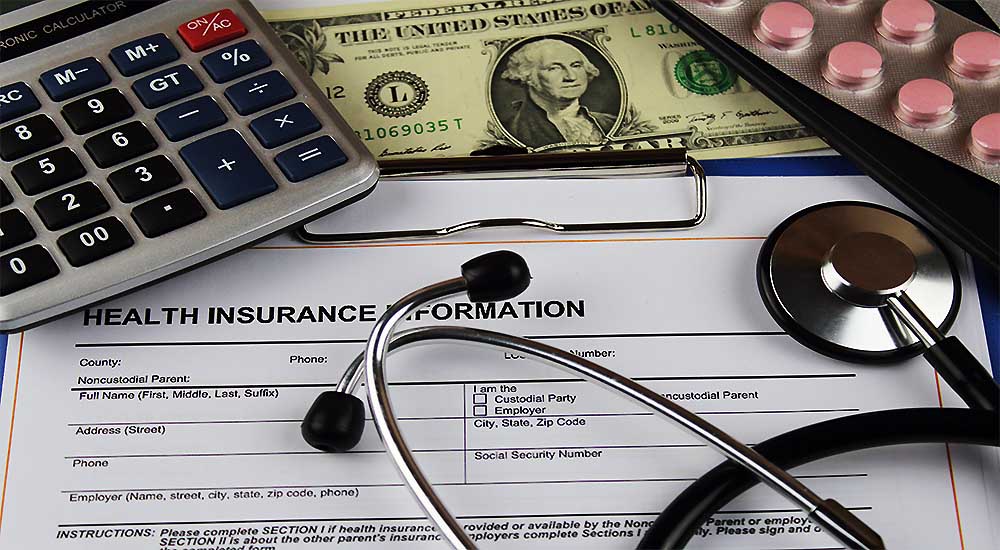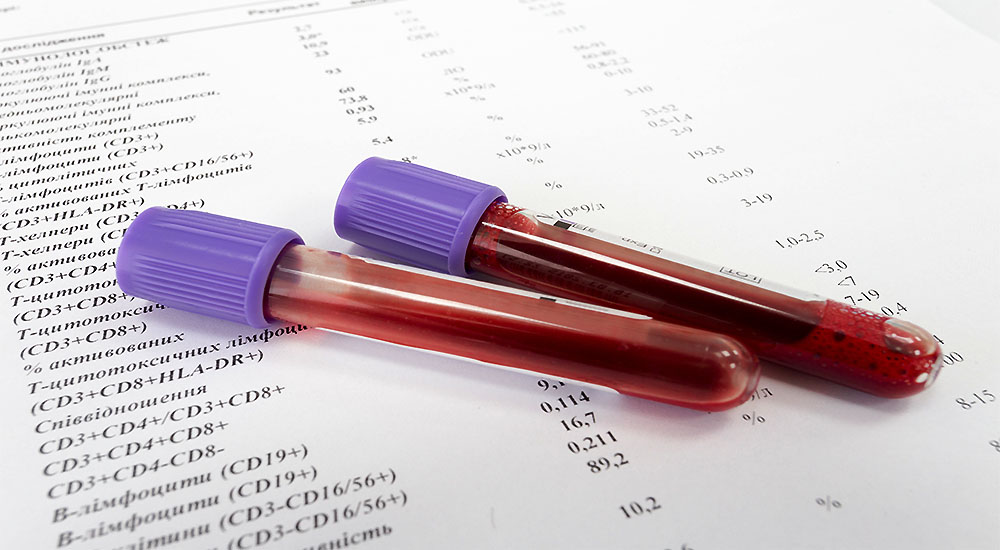Is There a Hidden Influence Driving Up the Cost of Your Health Insurance?

Why is health insurance so expensive?
- Health insurance costs you more every year.
- Health insurance premiums continue to rise while overall coverage decreases.
- The cost of drugs is high, especially when you’re told you need to take them for life.
A hidden element is responsible for your high healthcare costs
The same hidden element protects your insurance company’s profit while costing you a lot of money.
What is it? Let me introduce you to companies called Pharmacy Benefit Managers (PBMs). A PBM is a for-profit company that negotiates the drug prices for health plans.
Pharmacy benefit managers (PBMs) are the middle-man between your insurance company and a pharmacy. It’s the PBM that determines which pharmacies are in your plan’s network and which medications they will cover. PBMs negotiate price discounts and rebates for your insurance company, but not for you.
It’s all about the rebates paid to your insurance company
Drug manufacturers provide rebates to the PBM so they will include their drugs in a pharmacy, over their competition. Such rebates are legal, but it’s the “non-transparent nature” of PBMs that have many concerned.
The PBM’s client is your insurance company, not you, and they save them billions in the rebates each year. Simultaneously, they are setting high out-of-pocket costs for you as part of their insurance “product”.
Drug companies earn trillions annually, but those earnings are dependent upon their drugs being covered by insurance companies. The PBM will make that magic happen, but in exchange they want substantial rebates and discounts off the drug prices. The pharmaceutical companies are happy to comply.
The PBM “negotiates enormous discounts from pharmaceutical manufacturers”. Such discounts increase significantly each year and currently total $100 billion annually, according to the CEO of the Pharmaceutical Research & Manufacturers of America.
Where do you benefit from this scenario?
You don’t.
Just last year, November 2017, the New England Journal of Medicine spoke out against PBMs. “PBMs and insurers may have business objectives that differ from those of their clients [you]. They get a substantial portion of their drug-related profit from rebates.”
Why do drug prices keep rising?
According to the National Community Pharmacists Association, the practices of PBMs are contributing to higher and higher drug prices. You, the patient, suffer this high cost, your insurance company actually benefits.
Wait a minute; why would your insurance company benefit when you purchase a drug? They pay for the drug too, right?
Yes, they do, but your insurance company earns money when you take drugs. Health insurance companies are required to pay 80-85% of the premium monies they collect on patient care. This percentage used to be about 70%, but when Obamacare became law is increased. Ten to fifteen percent may not sound like a lot, but when you earn billions it’s a great deal. It is hundreds of millions in “extra money” that insurance companies are now required to pay for patient care. The money they used to enjoy a profit. [For more data on this, read “Is Your Insurance Company Making You Healthier or Keeping You Sick?.]
Your insurance company’s need to abide by Obamacare has resulted in a big “need” to spend all that extra money. An interesting problem to be sure, but a real one nonetheless.
Would you rather spend money on something for which you got a rebate?
When purchasing something, would you opt to spend money on something that would be rebated or an item with no reimbursement?
Of course, you’d opt for the expenditure that refunded you money. You may not be aware of this, but your insurance company receives a 30% rebate every time you purchase a drug.
If you buy a drug for $200, your insurance company gets paid $60. And, of course, purchasing more expensive drugs provides them a greater rebate. The higher-priced drug also allows them to conform to the increased spending required by Obamacare.
PBMs engage in “rebate pumping”, where they intentionally stock higher-cost drugs in a hospital’s formulary. Higher cost drugs equal bigger rebates.
The PBM and your insurance company profit from this practice – you do not – you pay more. As mentioned, the rebate your insurance company receives is about 30% of the total cost of a drug, sometimes more. Obviously if a drug is more expensive the rebate is greater.
Does it sound unfair that a PBM would stock a pharmaceutical’s expensive name-brand drug, but not make available the inexpensive generic, with the same efficacy?
Purchasing a drug – you vs. your insurance company
Let’s follow how much you pay for a drug vs. your insurance companies.
Let’s say a cutting-edge cancer drug costs $10,000 per month. The patient’s insurance plan requires her to pay a 20% co-payment. As a patient you think, “The $2,000 is steep, but thankfully my insurance company is handling the remaining $8,000, or 80%”. It may sound generous of them, but that’s not actually what they’re paying. The truth of what happens goes to the “non-transparent” nature of PBMs that we spoke of earlier.
You, the patient, are paying a percentage of the total sticker price. The PBM negotiates a large discount, typically 30%, reducing the cost to $7,000 per month. You are paying $2,000 per month, lessening the total cost to your insurance company further. They are paying $5,000, as opposed to the $8,000 you assumed they were paying.
Would you liked knowing you could have paid $1,400 per month (20% of $7,000) instead of $2,000 per month?
This would have saved you $7,200/year.
Your insurance saved $3,000 per month due to the PBMs negotiations. But your insurance company did not pass that savings along to you. As this reporter noted: “Manufacturer discounts and rebates are supposed to make prescription drugs more affordable, and thus more accessible, for patients. That’s not happening.”
Your insurance company gets paid a rebate even when you’re meeting your deductible
Your deductible is the amount you’re required to pay each year before your insurance company pays anything. If you’re paying for a drug fully out of your pocket because you haven’t yet met your deductible, you would assume your insurance company wouldn’t receive any financial gain, correct?
Nope.
Your insurance company will still receive the 30% rebate from the pharmaceutical company via the PBM. The increase in deductibles were calculated to cost you more while your insurance company continues to make money. During the time you are meeting your deductible, your insurance company enjoys extra income while paying nothing for your care.
What happens if your copay is too high?
What if the copay you paid your local pharmacy is more than what the pharmacy should receive?
Does your insurance company give you a refund?
Does the pharmacy call you and let you know you’ve overpaid?
No. Why not? This practice is called “clawbacks” – the Columbus Dispatch provided this description:
A PBM requires a pharmacy to collect a copay from a patient, the amount which is “set” by the PBM. If the patient copay is higher than the ultimate reimbursement to the pharmacy, the PBM requires the pharmacy to send that excess copay to the PBM, who keeps it as profit.
Let’s reiterate: You pay too much and your pharmacy sends the excess money to the PBM as their profit. Your pharmacy is constrained by “gag clauses” forbidding them from volunteering the information to you. And of course, your insurance company doesn’t want you to know either because they’d lose their rebate.
This Health Hack saves you money
Let’s look at a health hack you can use to save yourself a lot of money. The above scenario can be avoided by paying cash for your medication instead of using your insurance. In this instance paying cash actually costs you less than going through your insurance.
Hack: You CAN directly ask your pharmacy if the charge to you would be less if you didn’t use your insurance. If you ask them directly they are required tell you the truth.
Note: Be prepared to be tenacious, however. Pharmacies don’t want you to know about this and they will drag their feet, using the excuse that they’ll have to re-submit your prescription, etc, etc. You’ll have to stand firm because they will use a variety of excuses for why they cannot compare the two prices.
Insurance companies like it when you’re ill
Is it starting to make sense why your insurance company “likes” it when you take drugs? It’s simply a “money thing”.
So, does it also make sense that your insurance company actually wants you to continue to be sick? If you’re healthy, they lose money.
It’s a hard pill to swallow (excuse the pun), but it’s the truth.
The fact is your insurance company is not interested in improving your health, far from it.
The Solution? Get healthy
Here’s the big question: If you’re healthy, do you need drugs? Obviously not.
There’s your solution to high prices of drugs and the financial motivation of health insurance companies to keep you sick.
Root Cause Medical Clinic specializes in, and achieves, the reversal of many chronic health conditions: from heart disease to type 2 diabetes, from chronic digestive issues to fatigue, from pain to overweight – We get the job done.
We don’t just hand you a pill. You are an active participant in regaining your health, and we’re here beside you, holding your hand through the process.
Do you need help with your health?
We have the diagnostic and testing tools, the clinical experience, and a different medical approach to discovering the root cause of why you have the symptoms that are bothering you. As long as you are ready to make some dietary and lifestyle changes, we can help you. We will "hold your hand" through the changes, step by step, to make each step an easy one. We are located in Clearwater, FL, at 1000 S Ft Harrison, at the corner of Ft. Harrison Ave. and Magnolia St. There is plenty of parking space directly accessible from Ft Harrison. If it is not convenient for you to come to Root Cause Medical Clinic, we offer telehealth/telemedicine consultations to residents of certain states. Call us for details.
Contact us for a Consultation – Call 727-335-0400

Dr. Vikki Petersen DC. CCN
Founder of Root Cause Medical Clinic
Certified Functional Medicine Practitioner
Dr Vikki Petersen is a public speaker, author of two books, several eBooks and creates cutting edge content for her YouTube community. Dr Vikki is committed to bringing Root Cause Medicine and its unique approach to restoring health naturally to the world.
Ask a Doctor
Have a health concern you'd like to speak with a doctor about? Or just want clarity on a subject? Ask Us!
Featured Articles
Popular Stories
References:
1. https://www.forbes.com/sites/arleneweintraub/2017/11/30/patients-dont-benefit-from-drug-discounts-to-insurers-phrma-report-says/#3e5747701ec1″>https://www.forbes.com/sites/arleneweintraub/2017/11/30/patients-dont-benefit-from-drug-discounts-to-insurers-phrma-report-says/#3e5747701ec1
2.New England Journal of Medicine.2007 Apr 12;356(15):1503-16. Epub 2007 Mar 26. Optimal medical therapy with or without PCI for stable coronary disease. Boden WE, et al; COURAGE Trial Research Group. https://www.ncbi.nlm.nih.gov/pubmed/17387127
3.https://www.statnews.com/…/rebates-pharmacy-benefit-managers-contribute-high-dru..
4. https://www.charlotteobserver.com/opinion/op-ed/article207299164.html, entitled “How insurers cost (not save) you money on drug prices”
5. https://www.charlotteobserver.com/opinion/op-ed/article207299164.html
6. https://www.forbes.com/sites/arleneweintraub/2017/11/30/patients-dont-benefit-from-drug-discounts-to-insurers-phrma-report-says/#3e5747701ec1.
7. https://www.statnews.com/…/rebates-pharmacy-benefit-managers-contribute-high-dru


